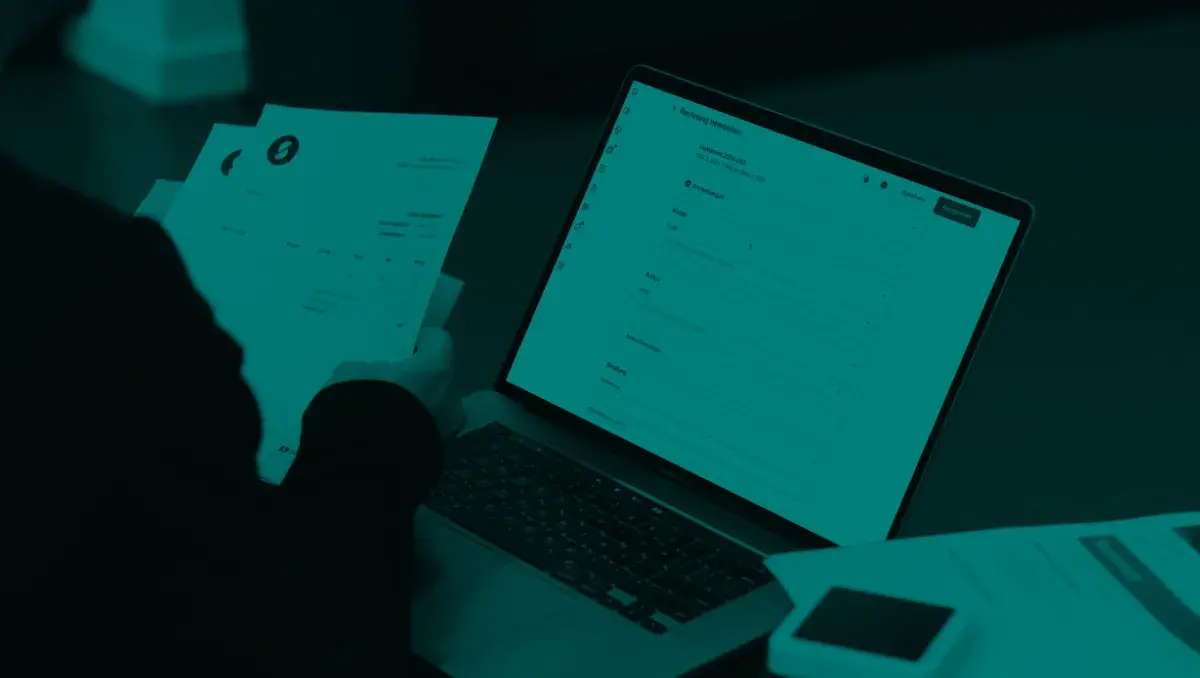
What is the ViDA Initiative and When is it Effective?
The European Commission is driving digital transformation through its ViDA (VAT in the Digital Age) initiative. Organizations worldwide must prepare now or risk compliance penalties. The ViDA requirement was adopted in March 2025 and is currently in a rollout stage that is to occur over the next several years, with certain parliaments enforcing ViDA at different rates.
The aim is to modernize and coordinate how Value-Added Tax (VAT) is reported and collected across EU member states. It also may impact organizations doing business with the EU. As a refresher, VAT is the consumption tax that is applied to goods and services at each stage of the supply chain and is paid by the end consumer. VAT can be charged at several points, unlike just at the point of sale, like sales tax.
Essentially, ViDA sets new rules for real-time digital reporting and electronic invoicing in its aim to reduce fraud, close gaps in compliance, and help make VAT administration more consistent across the EU. The various provisions are being rolled out progressively over the next decade, with key milestones to hit through 2035. That is not, however, a directive for organizations to wait a decade to act. The time to prepare for ViDA to be fully enforceable is now.
One of the key requirements is effective July 1, 2030. That’s when Digital Reporting Requirements (DRR), including mandatory e-invoicing for cross-border business-to-business transactions, must be implemented EU-wide. This helps cement a movement toward real-time reporting. By Jan. 1, 2035, all member states must have harmonized their domestic real-time reporting standards to the new EU standards.
Read More: Securing Global E-Invoicing with Robust MFT
How Does ViDA Impact US and Non-EU Companies?
The ViDA requirements don’t end at the EU’s borders. Any organization selling goods or digital services into the EU may need to adapt its processes to stay compliant. For U.S.-based and other non-EU businesses, this can mean:
- Upgrading invoicing systems – to meet EU electronic invoicing standards and ensure cross-border transactions are reported in real time.
- Registering for VAT in multiple jurisdictions – depending on where business is conducted, companies may need to manage VAT compliance across several EU member states.
- Managing higher administrative and technology costs – compliance requires significant investment in reporting tools, secure data exchange, and system integration.
These challenges can be mitigated by using integrated technologies that centralize data handling. A secure Managed File Transfer (MFT) platform, for example, helps organizations avoid the complexity of juggling disparate systems. With MFT, businesses can streamline invoicing processes, strengthen compliance with EU standards, and protect sensitive financial data while doing business across borders.
MFT Adds Security and Transparency to File Transfer Process
All these electronic transactions need layers of security, as electronic invoices, like their traditional counterparts, contain sensitive business and financial information. Details from transaction specs to personal and financial data are all susceptible to human error or criminal interception.
In addition, to ensure compliance with the GDPR (General Data Protection Regulation), file transfers must be proven secure and transactions auditable via encryption access control, and robust auditing and reporting to ensure information is kept confidential, maintains its integrity, and is available to authorized users.
To ensure that the electronic invoice process meets those standards, file transfers must be sent through channels that prevent unauthorized access. Robust MFT is the tool to make that happen and delivers the control needed to maintain data sovereignty.
Data Sovereignty Helps Keep Data Under Firm Control
As the VAT differs within the various member states, keeping sensitive data under each company’s individual control is a role that managed file transfer, like GoAnywhere MFT, from Fortra, handles effortlessly via:
- Control Over Where Data Lives: With MFT, organizations can decide where their sensitive data is stored and processed — on-premises, in a private cloud or even specific geographic regions in a public cloud environment. This helps ensure compliance with data sovereignty laws that require sensitive information to remain within national or regional borders.
- Control Over Who Can Access Data: Granular access controls in MFT provide role-based access and audit trails so organizations can manage and control exactly who can access data, where they can access it from and when it can be accessed. This control is essential for meeting sovereignty requirements, where only authorized users in a certain jurisdiction may view or handle data.
- Security and Encryption: MFT solutions that use strong protocols such as TLS, AES-256, and SSH protect files in transit and while they are at rest. This prevents unauthorized access, even if data is shared across jurisdictions or across networks. Using these protocols also helps organizations comply with GDPR regulations, as well as any regional financial data protection laws.
- Auditing and Compliance Reporting: Detailed logs and compliance reporting functionality provides the transparency sovereignty mandates require. Comprehensive reporting details where data has traveled, who accessed it, and if established controls were in place.
- Regional Policy Integration: GoAnywhere, as part of Fortra’s portfolio of data protection solutions, can integrate with Data Loss Prevention (DLP) to stop and block any data transfers that would run across sovereignty requirements, such as stopping EU citizen-related data from being transferred to a U.S server, for example.
Robust MFT helps satisfy data sovereignty laws with its enforcement, monitoring, and handling of data to reduce the risk of non-compliance and keep data moving efficiently.
MFT Protects Sensitive Data to Support ViDA Compliance
Under ViDA, additional information must be included on invoices to be in compliance. This information includes the VAT identification number of the supplier and customer, as well as the place of supply, and the VAT rate applied — all sensitive data.
And if a business sells their merchandise or services on online marketplaces or platforms, they too will need to ensure the correct VAT is charged and collected. With this type of financial data some of the most desired by cybercriminals, strong file transfer management must be in place to protect it.
Read More: Sharing Financial Files: The Benefits of MFT
A comprehensive MFT solution, like GoAnywhere, can help as the software can be integrated with existing data platforms to help ensure data exchanges are secure and compliant. Strong encryption protocols and secured transmission channels, coupled with automation functionality can support impacted organizations by protecting the sensitive information entrusted to them as well as reducing the risk of human error, non-compliance, and malicious data breaches.
GoAnywhere supports AS4 (Applicability Statement 4), a protocol that simplifies B-to-B data exchanges and helps standardize web services for exchanging sensitive data, such as electronic invoices, ensuring different systems are compatible.
Read More: Securing Global Invoicing Initiatives with MFT
Belgian Organization Incorporates Secure Forms to Meet ViDA Requirements
“In anticipation of the impact of ViDA requirements, one of our customers determined early on that they needed to incorporate a secure way to collect the data they needed to comply with ViDA,” said Michale Barford, Senior Solutions Engineer, GoAnywhere MFT. “And, per their parliament’s timeframe, they are looking to enforce B-to-B e-invoicing by Jan. 1, 2026, so the pressure was on to get a solution in place capable of securing their e-invoicing process.”
The company boasts 15,000 global supplier relationships across 30 countries, with more than 27,000 employees “And, like many organizations in the EU, uses the Peppol API for its electronic procurement system. "Specifically, this organization wanted to create a registry of their suppliers, so that they can update and provide e-invoices with all the relevant information included and keep that information secure,” added Barford.
Secure Forms is an add-on module for GoAnywhere, and when integrated with the Peppol platform, allows end-users to fill out and submit information online through secure, custom-made forms and upload those files through a Web Client, or submit the forms online by making SOAP or REST requests. Ultimately, once a form is submitted, it can trigger the execution of a project to automatically process the submitted files and values.
“By implementing Secure Forms, this company can not only reduce its risk of manual entry errors, it also accelerated their compliance readiness ahead of schedule,” added Barford.
Managed File Transfer Supports ViDA Rollout
As the various phases of ViDA rollout, EU organizations as well as those organizations outside of the union, but who do business with the EU need to consider how financial and other data is exchanged, secured, and validated.
Preparing now will not only help satisfy the new invoicing standards, it also means that whatever stage an organization is at, it can be assured that sensitive information is safe, workflows are streamlined, and compliance is built into operations organization-wide.
No matter the regulation or compliance deadline, strengthening data security measures offer a timely opportunity to secure and modernize file transfer processes.
See how GoAnywhere MFT Can Help Meet ViDA Requirements
Explore how secure, automated file transfers and compliance-ready protocols come together in one user-friendly platform. Request a demo of GoAnywhere to learn how you can simplify the e-invoicing process, protect sensitive data, and stay ahead of evolving EU standards.
